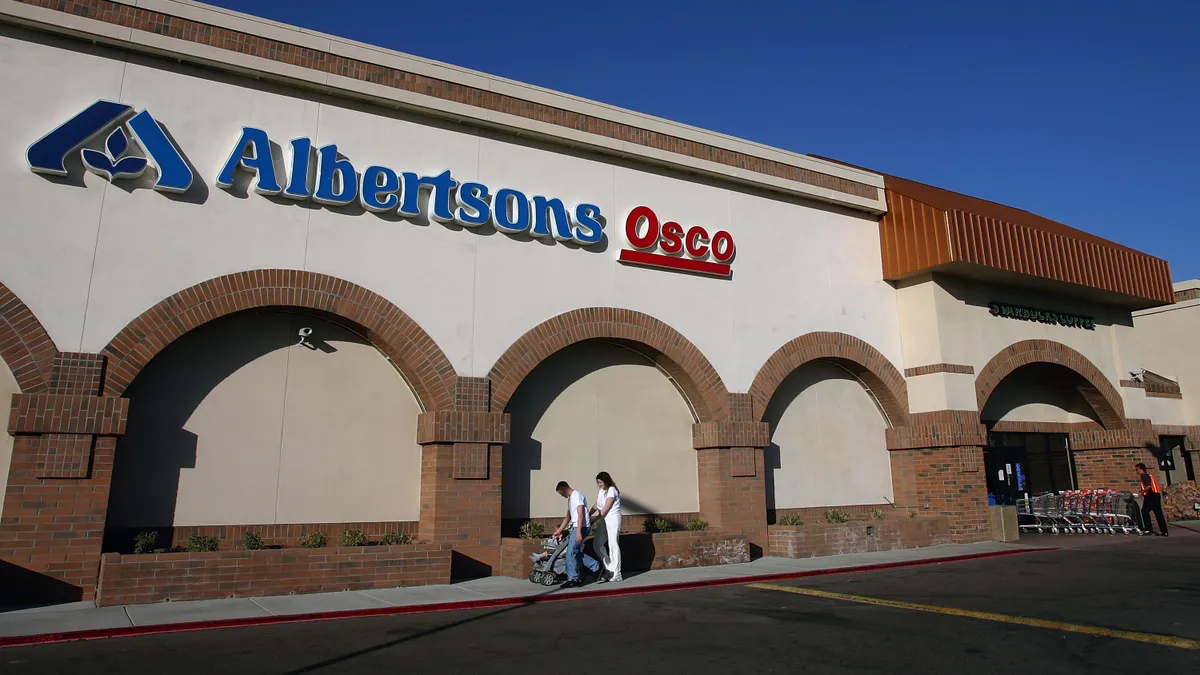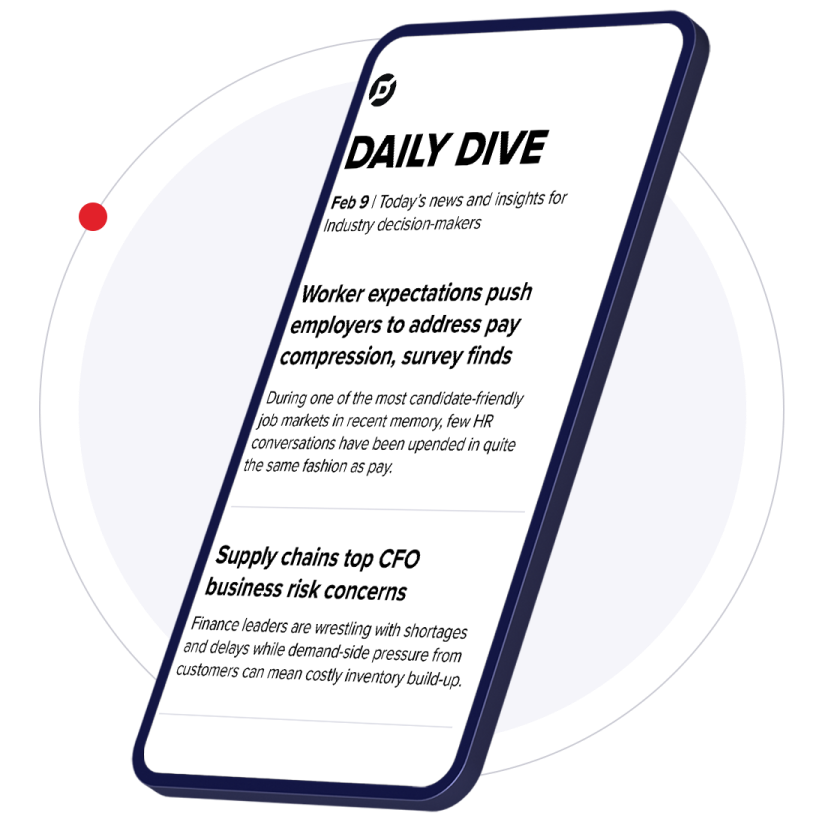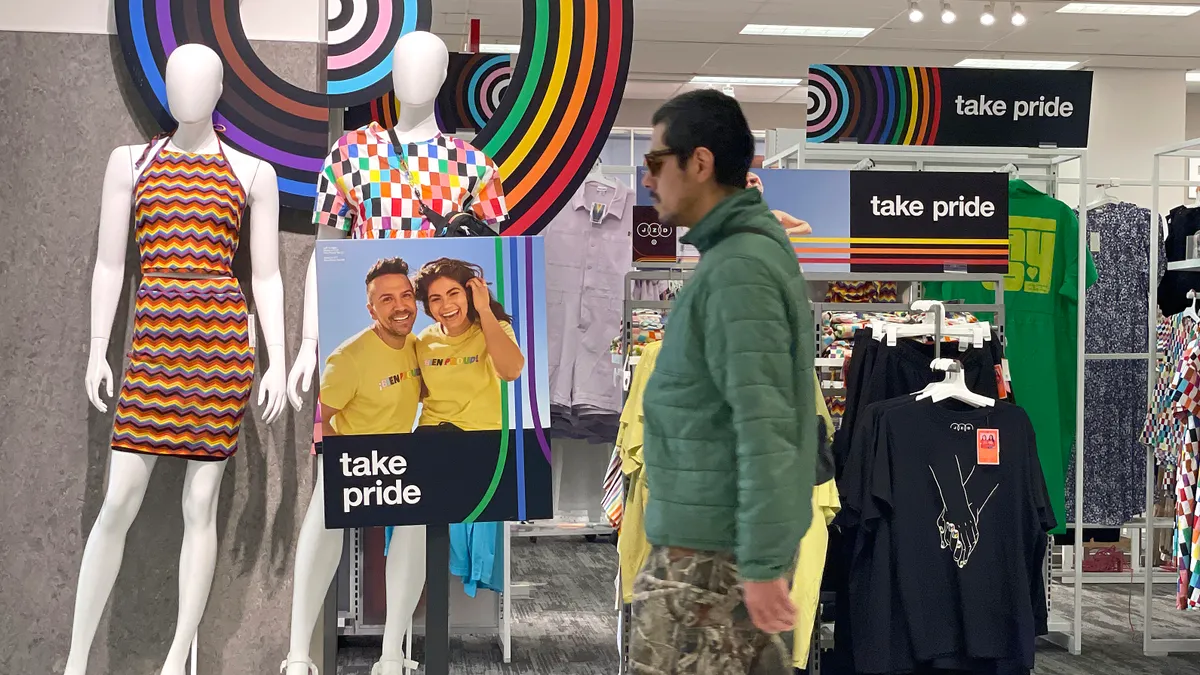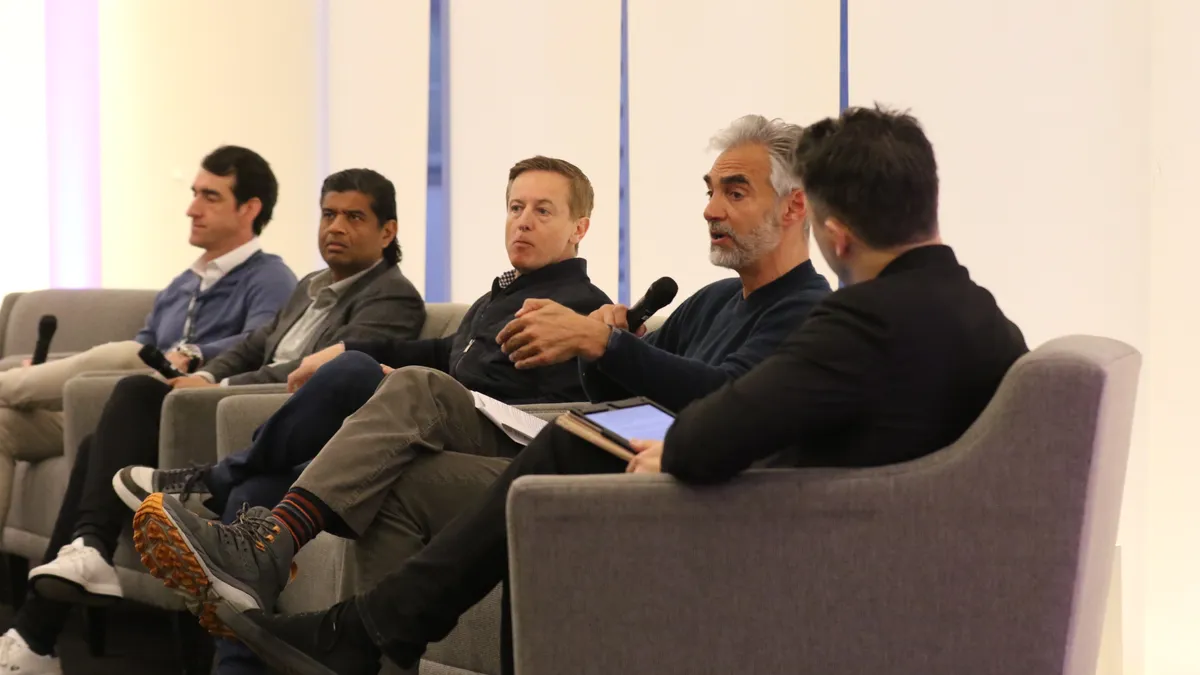Dive Brief:
- Albertsons Media Collective, the retail media unit of grocery giant Albertsons, today (June 22) announced a proposal for a standardization framework meant to bring greater unity and transparency to the budding retail media landscape.
- The initial version of the framework focuses on implementing common practices in four areas: product characteristics, performance measurement, third-party verification and network capabilities. The goal is to help advertisers transact and compare campaign performance more easily, while also delivering a better experience to end consumers.
- Albertsons cited a McKinsey & Company analysis suggesting standardization could add $5 billion to $15 billion in value for the space over an estimated three years. The framework will be overseen by an advisory group and received sign-on from Unilever and Omnicom Media Group (OMG), an existing Albertsons partner.
Dive Insight:
Retail media has remained a growth juggernaut despite a broader ad-spending slowdown driven by waning pandemic trends and budgetary pressures. But as more retail media networks are stood up, with retailers racing to monetize their media assets using valuable first-party shopper data, advertisers have voiced mounting frustrations with a space viewed as complex, inefficient and costly.
The sense that retail media networks are repeating the past mistakes of digital walled gardens has become prevalent, posing what Albertsons views as an existential crisis for a channel that is effectively still in its infancy. Many brands now describe retail media buys as a tax as much as they are a benefit, a problem that could be amplified as resources are strapped in a rocky economy.
Albertsons Media Collective is looking to allay these concerns with its proposal for an industry-wide Retail Media Standardization Framework. The news was announced at the Cannes Lions International Festival of Creativity, which acts as the Oscars for adland. By adopting shared practices around core aspects of the business between retailers, the group believes it will encourage more ad spending, raising all ships. Retail media is expected to be the third fastest-growing marketing channel behind connected TV and out of home this year, representing 14.4% of global advertising revenues, according to GroupM estimates.
“To ensure the survival of this industry, we must come together toward a greater goal,” said Kristi Argyilan, senior vice president of retail media for Albertsons Companies, in a press statement. “We believe this framework will serve as a starting point for creating a unified approach to retail media standardization.”
Albertsons is initially keeping the focus simple, with four core areas for network operators to adhere to. The framework aims to streamline product characteristics for ad formats, drawing on existing guidelines established by the Interactive Advertising Bureau. It also proposes that networks adopt shared metrics for tracking campaign performance. Third-party verification is another mandate, with a checklist touching across fraud detection, ad placement and viewability and brand safety. Lastly, the framework argues for network disclosures on staffing, processes, and data-technology-oriented services, or what it terms “capabilities.” Albertsons will pressure-test its recommendations and ensure they are broadly feasible before the framework is finalized.
Over half of surveyed marketers (56%) currently work with at least five retail media networks, according to a January report from the Association of National Advertisers (ANA), while 16% use at least 10. The ANA characterized many retail media advertisers as “reluctant” buyers who view the channel as a cost of doing business. Albertsons frequently cited the findings in a white paper accompanying its announcement.
Reducing complexity and increasing consistency could appeal to advertisers and agencies that have to juggle multiple networks carrying differing approaches to transacting. Albertsons named OMG, Unilever, Pinterest and R3 among its early allies.
“At Unilever, we are supportive of this workstream as we believe it’s essential for the industry to come together to tackle standardization when it comes to attribution, measurement, frequency of reporting and transparency,” said Aaron Sobol, head of U.S. media investment and partnerships at Unilever, in a statement. “We continue to be an advocate for industry-wide solutions.”
The success of Albertsons’ framework is contingent on buy-in from retail media rivals that are notoriously cagey and competitive. The initiative might invite additional skepticism as Albertsons is on track to merge with Kroger, a dominant force in the grocery category and the owner of one of the most mature and sophisticated retail media networks.














